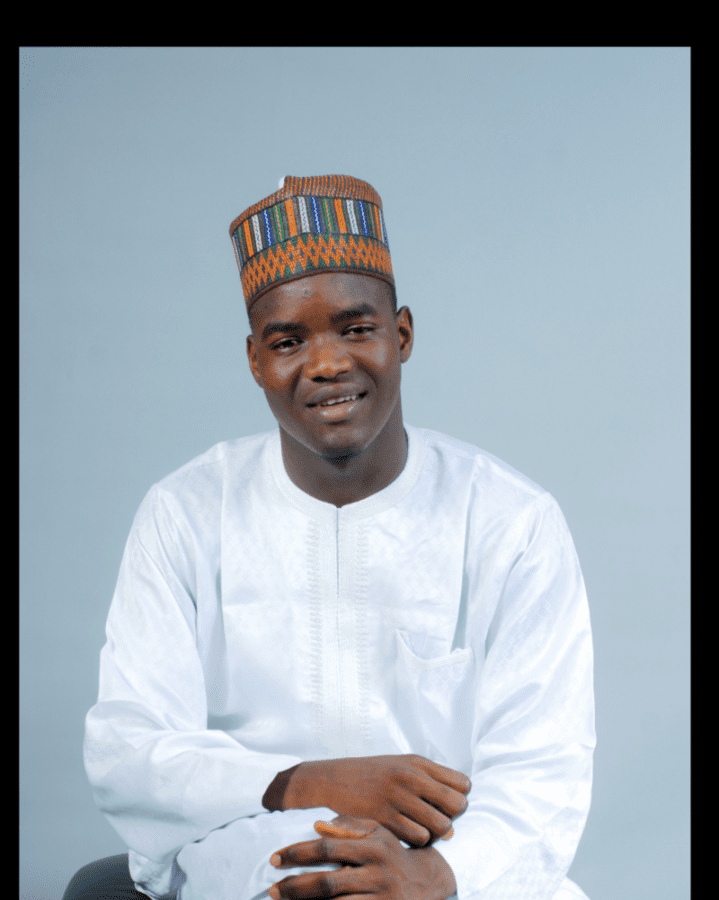Global Issues
Youths As Bridge-builders For The Future -By Aliyu Danladi

The topic of youth participation and inclusion in governance has drawn the attention of several stakeholders, professionals and relevant authorities over the years. Perhaps due to the uncertainty surrounding the outbreak of the COVID-19 pandemic, the awareness for youth engagement had seen an unprecedented surge in magnitude, with thousands of lectures, conferences and summits organized in the days leading up and following the 2020 International Youth Day on 12th August with the theme “Youth Engagement for Global Action”.
I hope, nevertheless, that my presentation will not be regarded as only a repetition of ideas and thoughts on a topic exhaustively discussed, but rather be considered as a reminder to us, the youths, of our outmost responsibility in building and redefining the future, made uncertain by the far-reaching consequences of the COVID-19 pandemic.
It is obvious that post COVID-19 world will be different, with its own requirements. One such requirement is the ability of youths and students, especially of Nigeria, to survive amidst uncertainty consequent of the pandemic and a record 10-month strike embarked by the Academic Staff Union of Universities (ASUU).
The role of youths as pillars of society dates to time immemorial. From the time man lived in caves, when, by dint of inherent physical strength and bravery, youths were relied upon for food hunting and protection of the cave dwellings, to the evolution of more sophisticated societies and up to our modern world, the society has always drew upon the imagination, creativity and dynamism of youths for advancement in arts, science, innovation and technology.
Swept by unprecedented political changes in the 20th century, the world had seen youths, especially African youths, play a leading role in global Pan-Africanism, African nationalism and independence struggles, and subsequently, post-colonial politics. In an unfortunate contrast, youths in the 21st century have found themselves alienated from the center of decision making.
Worse than political alienation, the future of a large percentage of youths, especially in Third World nations, is mired in a tangle of poverty, unemployment, drug abuse, insecurity and socioeconomic decline.
In view of the relegated role youths have come to take, from decision makers to the receiving end of decisions and policies, it is pertinent to identify the challenges youths have faced recently and examine the prospect of the future if full potentials of youths are employed.
CHALLENGES OF YOUTHS IN THE 21ST CENTURY
Inadequate education in an ever-changing world.
Inequities in the private and public sectors.
Unemployment and job competitiveness in the face of increasing labour market demands.
Unproductiveness caused by drug abuse, abusive relationships, domestic and gender-based violence and general decline in mental wellbeing.
Loss of consciousness and values.
Lack of political awareness and orientation.
POTENTIALS OF YOUTHS AND PROSPECT FOR THE FUTURE
Beginning from the last quarter of the 20th century, various international and multinational organizations have expressed concern for more youth inclusion in decision making and development. The United Nations has, since 1985, been celebrating International Youth Day annually, with the aim of raising awareness and consciousness among youths. The UN General Assembly had adopted a 15-point World Programme of Action for Youth (WPAY) in 1995 to “provide a policy framework and practical guidelines for national action and international support to improve the situation of young people around the world”.
At continental level, the African Union had adopted the African Youth Charter in 2006 to “provide an avenue for effective youth participation in the development process”.
At national level, the National Youth Council of Nigeria (NYCN) was established in 1964 as the umbrella of Nigerian youths, “charged with policy formulation and implementation on issues bordering on youth development in Nigeria”.
The Nigerian Youth Parliament (NYP) was established as “A Legislative and Developmental Training Institution, created to strengthen, reinforce and consolidate efforts in empowering Young People through meaningful youth representation in driving Nigeria’s developmental agenda”.
However, despite the many policies and guidelines established for youth engagement and development, it is pertinent that such policies are translated into objective goals, whereby;
Every youth will get access to better education, including technical education and vocational skills.
More jobs will be created for youths with a view to harnessing the potentials of the workforce and reducing the rate of unemployment
Youths will be included as an integral part of decision making beyond youth councils and parliaments.
Apart from institutional policies, youths themselves have a role to play as the bridges between the past and the future. Balanced between the impetuous dream of childhood and the resignation of old age, youths are at an advantage to shape the future, avoiding the mistakes of the recent past and hoping for a better future.
At this juncture, I want to share with you a touching incident I witnessed the day before yesterday that was on Tuesday, Jan 12. I walked to the road in the morning at a time when students and pupils were rushing to school. It was a spectacular view. It was long since I saw schoolchildren in their uniforms; I was either away at university, or even when I’m home, I would be indoors at the early hours when pupils left for school.
So seeing them that morning made me recall my school days when my mother would hold me by the shoulders and take me to school. I remembered the hope she had maintained in seeing me become educated, believing that education was the key to the future. Not only my mother, I remembered the hope of the society in young people going to school. I could remember during primary school days, there was scarcity of transport. At the morning rush, people going to work would wave down motorcycles and allow students and pupils to climb first. Even at provision stores, people will let students purchase items and leave on time, telling those students and pupils that, “You are the future of Nigeria. Education is the key to development.”
Such is the expectation of society on us, young people. At that moment I burst into tears, recognizing the burden of hope on me and seeing that hope hampered by uncertainties. I wiped off the tears and walked back to the house. I would not let my mother see the tears. She would be disappointed seeing her hope faltering. I vowed to be not only the future she sees, but the future of even unborn generations.
Let us youths assembled here today vow to become the future that our society expects from us, seeking the blessings and guidance of the old generation. As old age retires, the unrealized dreams, hopes, ideals and vision are for youths to aspire.
The future is there for us to build. Let us start building it now.
Aliyu Danladi is a student at Bayero University, Kano, where he participates in Students’ Unionism. Born in Gombe state, he writes poems, literary reviews and articles related to politics and national issues. He can be reached through aliyudanladi212@gmail.com


















